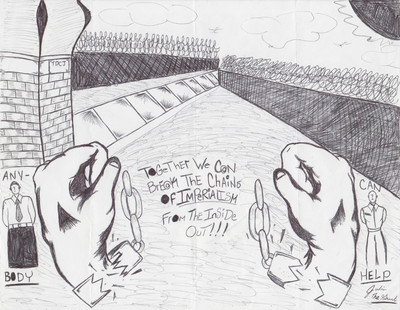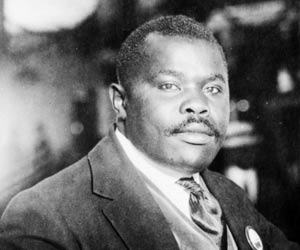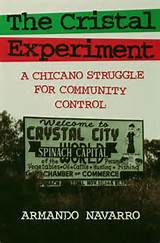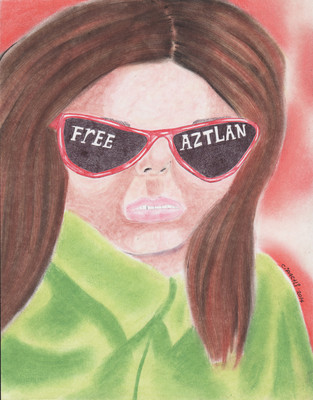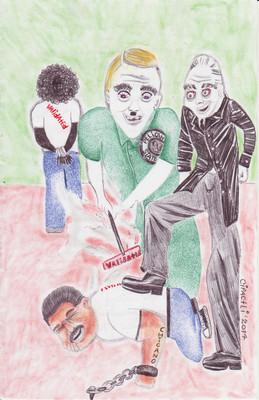
Control Units: Social Control for Semi-Colonies in the United $tates
Comrades living outside of the First World, and specifically outside of United Snakes borders, may be surprised at the social reality of this prison house of nations. The methods employed on the internal semi-colonies are in ways like what is seen in the Third World. The concentration kamps in the United $tates are renamed control units and (CUs) and in most cases the CU population are from oppressed nations. Although the names of these torture centers change, the purpose is the same. The CUs are the centers of neutralization.
Amerikkka attempts to bribe the population living under its heel, and for those who cannot be bought off with luxury items, it tries hard to isolate and dehumynize us lest we influence others. The state understands that even a bribed population may be concerned with humyns being housed in dog kennels without sunlight for decades, so they created the “gang” boogeyman. Just like Nixon created the “war on drugs” in order to criminalize the oppressed nations in the United $tates, today the war on the oppressed continues and rages on, only the CU is the contemporary “final solution.”
Understand the Enemy’s Control Units
Although most of us held in CUs think of ourselves as strong-minded warriors and soldados, sometimes we underestimate the effects that CUs have on us as people. Sure we are strong-minded, it is why we were kidnapped from the mainlines and stuffed in here. But it’s important that we understand the nature of the CU so that we can find ways to combat its effects.
The Russian investigative journalist Andrei Soldatov said in an interview about a year ago, about whistle blower Edward Snowden and his current circumstances,
“Snowden is not a trained intelligence agent. But those who are can tell you, if you live in a controlled environment, you cease to be truly independent-minded because everyone and everything around you is also controlled.”(1)
If lumpen are “independent-minded” compared to most of the bought-off populations in U.S. borders, then as the above journalist noted, a controlled environment works to crush this independence. CUs can thus be seen as a bigger tool than many realize. This is not saying that all prisoners held in CUs are not or cannot be independent-minded, but it does mean that we need to guard against this because CUs do attack our independence.
Those of us who are held in CUs are those who threaten Amerikkka the most; it is why we are buried alive in these tombs. Our methods of social organization are outside the influence of the oppressor nation, and this scares them. This fear to protect their privilege compels Amerika to find new ways of neutralizing their enemies, and under the guise of the war on “gangs” it can and does use torture by control units with little notice from the majority of the U.S. population.
Bush 2’s legal mouthpiece John Yoo said abuse becomes torture if it inflicts severe pain, and if the interrogator intends to inflict severe pain or suffering. Yoo defined severe pain as necessarily being associated with death, organ failure, or serious impairment of bodily functions. And abuse isn’t considered torture unless there is “prolonged mental harm,” with “prolonged” defined as over months or years.(2)
This gave the United $tates and its agencies unfettered reign to dive deep into all of its torture projects and unleash them on oppressed people in and outside of U.S. borders. Anything short of organ failure can be used on prisoners. CUs are used by “interrogators,” because before we are released from CUs the state wants us to debrief or do journals. The state is also pushing profile requests, sometimes called “compass” in order to build its intelligence on imprisoned lumpen. This helps them repackage our oppression in the name of “corrections.”
Control units are tied to our colonization process. They are but physical manifestations of colonization in the 21st century. So theory that forms in response to CUs, and which attempts to give us ways to not just cope but combat these torture centers, must keep in mind that colonization is at the root of our current battle.
One author put it this way:
“It is my contention that any theory must take into account the fact of colonization of Chicanos. This is not to suggest that colonialism is the only or the ‘correct’ perspective, but rather that colonization is an essential historical fact that cannot be ignored. Just as any theory of black oppression must consider the legacy of slavery, so any perspective on the Chicano must be cognizant of its colonial legacy.”(2)
Our theories revolving around the internal semi-colonies in U.$. borders must take into account the reality of us as a colonized people. For Aztlán, the First Nations, New Afrika and Boriqua, we are NOT Amerikkkans. We are nations that are colonized by Amerika, and control units are tools used in this colonization process.
What Good Can be Made of the Control Units?
Looking at it from a dialectical approach, yes control units are horrific designs which I have seen suck the mental capacities out of brilliant thinkers for years, but there is some promise for those held in the kamps. Control units provide us with concrete examples of our oppression so that we can teach people on both sides of the prison walls exactly what national oppression entails. Another nugget that we can glean from control units is that they concentrate the most rebellious sectors of the prison mass. Those held in control units have an audience and are in many ways leaders in their own right already, within their own circles of influence. So it is from here where the seeds of revolution will be sown to spread throughout the prison system.
The lumpen within control units, and those being released to the general populations across the United $tates, often struggle against the state and its oppression. This is good. But unorganized forms of struggle must be transformed into organized forms of struggle. In order for this to happen, conscious prisoners must exert a revolutionary influence on our fellow prisoners.
Prisoners tortured in control units, no matter how long, are “baptized”
into the social reality of life in the United Snakes. It is a wake-up
call where lumpen of all nations are given a reality check. It is a
place where all bribes are stripped away and the mask of U.$.
imperialism is finally discarded. Although it is a painful process, the
flip side is that control unit prisoners are more open to revolution,
perhaps more so than any other sector of the U.$. prison system, and it
is from the control units that we will harvest the next generation of
revolutionaries.








